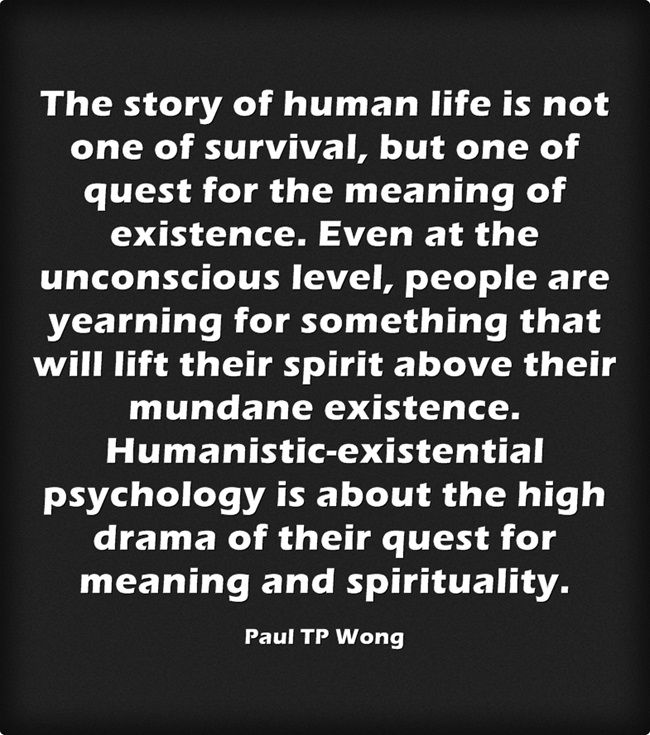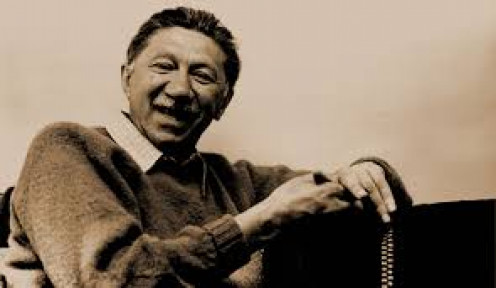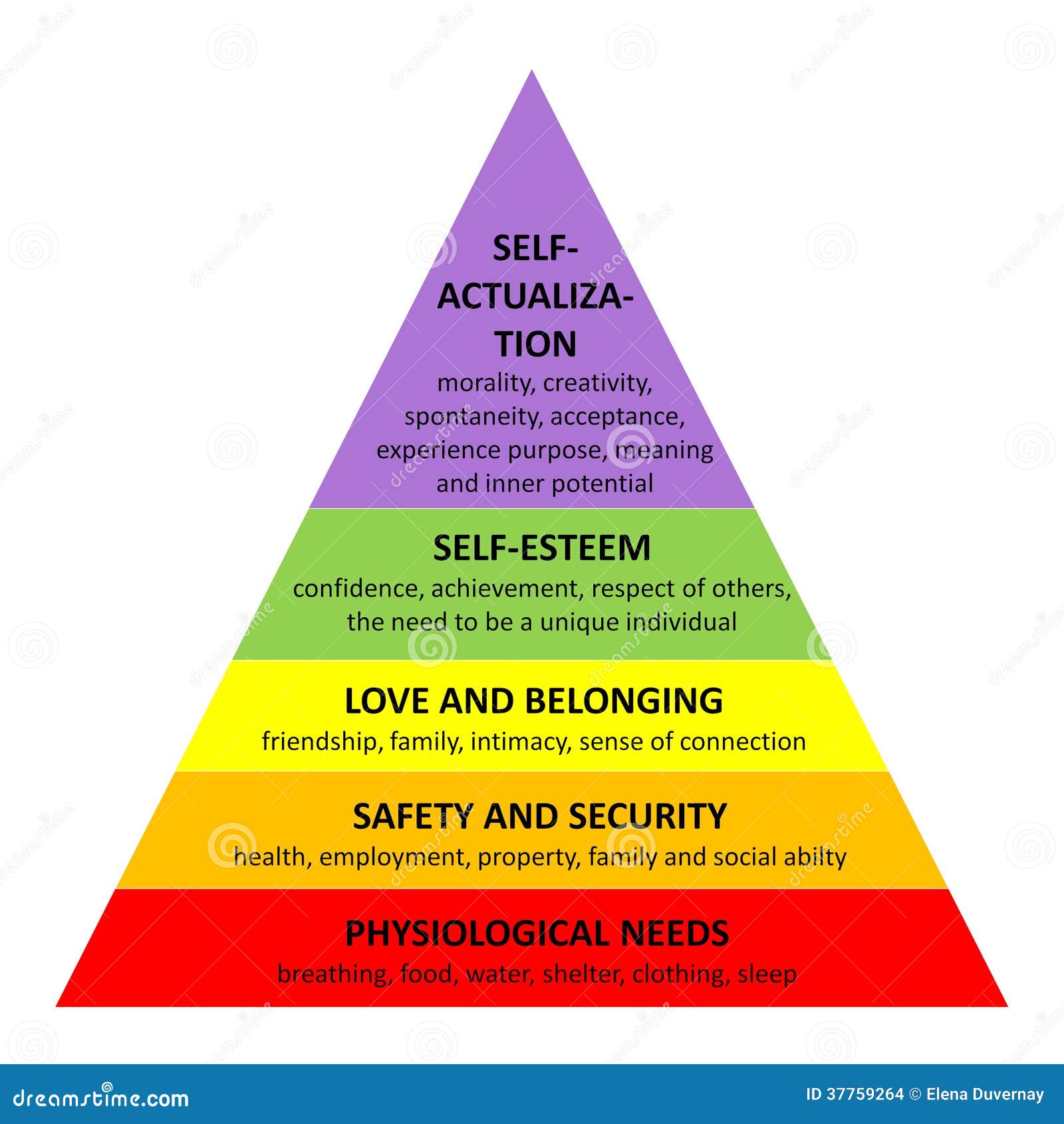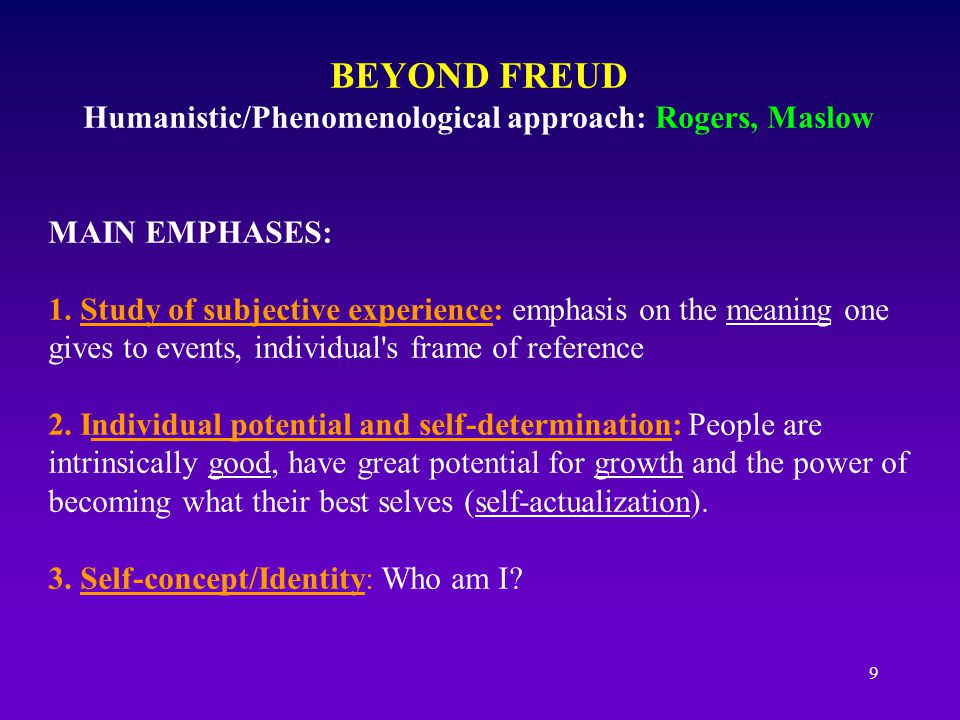Abraham Maslow will forever be remembered as one of history’s most illustrious psychologists. By working together with a number of other legendary psychological figures, like Carl Rogers, Maslow helped pioneer Psychology’s Humanistic Approach which focuses on the inherent goodness of humans. While he is most notably recognized for developing Maslow’s Hierarchy of Needs and his theory of
The humanistic approach is thus often called the “third force” in psychology after psychoanalysis and behaviorism (Maslow, 1968). Humanism rejected the assumptions of the behaviorist perspective which is characterized as deterministic, focused on reinforcement of stimulus-response behavior and heavily dependent on research.
Humanistic psychology (humanism) is grounded in the belief that people are innately good. This type of psychology holds that morality, ethical values, and good intentions are the driving forces of
– humanistic theory assumes that people are good, but do bad/evil things because of the influences of their environment -existential theory assumes that people have the inherent capability for both good and evil within them, and the choices people make will define them
Maslow was an indefatigable optimist, maintaining an extremely positive view of people and valuing man’s goodness, dignity and intelligence. As a firm believer in the free will and ascendancy of man, he stressed the ideas of choice, values, creativity, and self-realization.




Humanist psychology, like all aspects of the Secular Humanist worldview, is strongly influenced by their assumptions about theology, philosophy, and biology. Leading Secular Humanist psychologists begin with the assumption that a personal God is a myth and that we are simply products of spontaneous generation and billions of years of evolution.
Humanistic Theory (Maslow) The focus of the humanistic perspective is on the self, which translates into "YOU", and "your" perception of "your" experiences. This view argues that you are free to choose your own behavior, rather than reacting to environmental stimuli and reinforcers.
Like Carl Rogers, Abraham Maslow is widely regarded as one of the founders of the Humanistic Approach. While less influential among therapists than Rogers, Maslow became very well known to the, due to his interest in applying psychological principles in business settings.
B. there is a good part to everyone, even the man she is having trouble with now. "A hungry man is not a free man." What feature of the humanistic approach to personality does this reflect? A. The emphasis on personal responsibility and free will B. Rogers’ fully functioning person C. Maslow’s hierarchy of needs





Personality and Maslow. One of the most common models used in psychology, the Hierarchy of Needs was the result of Abraham Maslow’s research on the basic motivations of s and humans. Maslow explained the human needs in a pyramid-like figure. At the bottom of the pyramid are the physiological needs (air, food, water, etc).
